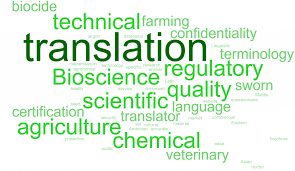Do you enjoy a foreign language, do you like playing with words and would you like to become a professional translator? Our experts have prepared a few areas for you that you should master in order to become a professional translator.
The work of a translator is sometimes underestimated because translators have to face several challenges in their work, not just an understanding of grammar and culture. In this article, the experts from Real Deal company bring you a list of several challenges that translators face in their translation work:
Language structure
Each language has agreed rules and a defined structure. The complexity and uniqueness of the language structure determines the degree of difficulty of translation. The role of the translator is not to translate word for word, but to convey the meaning of the sentences into the target language. Each language has different rules and structures that need to be followed to maintain the same meaning. If the translator does not have a perfect knowledge of the language structure, then many sentences in his target translation do not make sense. As a result, translators often have to add, remove, and rearrange source words to make their translation in the target language understandable and efficient.
Idiomatic expressions
Many linguists argue that the translation of idiomatic expressions is one of the greatest translation challenges. Idiomatic expressions explain certain phenomena through unique examples or phrases, and the meaning of these special phrases cannot be predicted from literal definitions of words. The only tool for translators is the cultural knowledge of the country.
Missing names
Certain activities or objects in one language may not have exact names for certain activities or objects that exist in another language. Therefore, the translator must involve various tactics in the transmission of the idea and ensure that the target reader / listener understands the author / speaker of the source.
Style
Style is the overall attitude or feeling in a text. Adaptation of the same style is one of the most difficult tasks for translators.
Expertise in the industry
The professional work of a translator means enough knowledge and experience in specific areas. In the case of marketing documents, the translator must adapt the message to the culture, society and lifestyle of the target market. For example, when translating a simple slogan, the sentence must be arranged in the target language so creatively that the target market understands what it is all about. With regard to legal documents, the translator must be familiar with the legal systems and laws of each country involved in the translation of the legal document.
When it comes to translating a website, it’s not just a word-to-word translation, but a localized approach. Website localization is a specialized process of adapting website content and applications to regional or local customs. It is something more than a translation, because the source text must be extracted e.g. from the application, it is translated into the required language, re-imported and the functionality of the entire application is tested. The purpose of localization is to translate the text so that it is not needed to rewrite the programming code of the software.
Our specialists locate several types of websites, mobile applications, business applications, etc.
Translations of specific content
Literary translations focus on conveying feelings, emotions, and rewriting metaphors so that readers can immerse themselves in fiction. When translating fiction, the translator must be able to rewrite the whole story, context, world and environment into another language in such a creative and comprehensible way that it preserves the faithful image of the original work, does not alter the work and preserves the purpose of the original work. When translating films, the translator must choose the right words and expressions that fit into each scene and maintain a certain coherence. In poetry, the implicit message, writing style and beauty of the work must be preserved.
An essential condition for carrying out a translation activity is knowledge of a foreign language at the level of a native speaker, e.g. at C2 level. And what makes every translator a professional? Experience and practice. By means of continual education the translator can gain experience and easily adapt to today’s ever-changing world.
